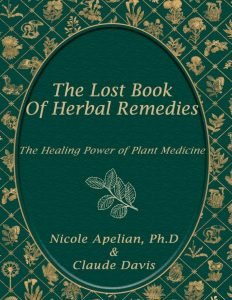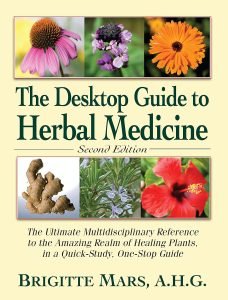What Are Some Good Home Remedies?
Looking for effective ways to treat common ailments without leaving the comfort of your own home? Look no further! In this article, we will explore a variety of tried and tested home remedies that can help alleviate your symptoms and promote overall wellness. Whether you’re seeking relief from a pesky cough, a stubborn headache, or simply looking for a natural boost for your immune system, we’ve got you covered with some great home remedies that are easy to find and simple to implement. Say goodbye to expensive medications and hello to the power of natural healing!
Cold and Flu Remedies
Honey and Ginger Tea
When you’re feeling under the weather with a cold or flu, nothing quite soothes like a warm cup of honey and ginger tea. Ginger has natural anti-inflammatory and antibacterial properties that can help alleviate symptoms of respiratory infections. Simply steep a few slices of fresh ginger in hot water for about 10 minutes, then add a tablespoon of honey for a touch of sweetness. Sip on this comforting tea throughout the day to ease congestion and sore throat.
Saltwater Gargle
Dealing with a sore throat? A simple saltwater gargle can work wonders. Mix half a teaspoon of salt in a glass of warm water and stir until dissolved. Take a small sip of the mixture, tilt your head back, and gargle for about 30 seconds before spitting it out. The saltwater helps to reduce inflammation and kill bacteria, providing temporary relief for your sore throat. Repeat this several times a day for maximum effectiveness.
Chicken Soup
It’s not just an old wives’ tale – chicken soup really can help you feel better when you have a cold or flu. The warm, comforting broth soothes sore throats and provides hydration. Additionally, the amino acid cysteine found in chicken may help thin mucus and ease congestion. You can make your own chicken soup by simmering chicken, vegetables, and herbs in a pot of water. Add some noodles or rice for a hearty meal that’s both nutritious and comforting.
Garlic
Garlic not only adds flavor to your dishes, but it also has powerful medicinal properties. It contains a compound called allicin, which has been shown to have antibacterial and antiviral effects. When you’re feeling under the weather, incorporate garlic into your meals or take garlic supplements to help fight off those pesky cold and flu viruses. Freshly minced garlic can also be mixed with honey for a potent immune-boosting remedy.
Steam Inhalation
Clearing up congestion is key to feeling better when you have a cold or flu, and steam inhalation can provide much-needed relief. Boil a pot of water, remove it from the heat, and position your face over the pot, covering your head with a towel to trap in the steam. Breathe deeply for about 10 minutes, allowing the steam to help open up your nasal passages and relieve congestion. For added benefits, you can add a few drops of essential oils like eucalyptus or peppermint to the water.
Sore Throat Relief
Warm Saltwater Rinse
Soothing a sore throat can be as easy as a warm saltwater rinse. Dissolve half a teaspoon of salt in a cup of warm water and stir until it’s fully dissolved. Take a small sip of the mixture, tilt your head back, and gargle for about 30 seconds before spitting it out. The salt helps to reduce inflammation and draw out excess fluids, providing temporary relief for your sore throat.
Honey and Lemon
A classic remedy for sore throats, honey, and lemon offer a delicious and soothing combination. Squeeze the juice of half a lemon into a cup and add a tablespoon of honey. Mix well and sip on this natural remedy throughout the day. Honey coats the throat, while lemon provides Vitamin C and acts as an antibacterial agent. Together, they can help soothe your sore throat and boost your immune system.
Marshmallow Root Tea
Marshmallow root has long been used as a natural remedy for sore throats and coughs. It contains a substance called mucilage, which forms a protective layer on the throat, reducing irritation and inflammation. To make marshmallow root tea, steep one tablespoon of dried marshmallow root in a cup of hot water for about 10 minutes. Strain and drink this herbal tea to help relieve your sore throat.
Chamomile Tea
Known for its calming properties, chamomile tea can also provide relief for a sore throat. Brew a cup of chamomile tea using a chamomile tea bag or dried chamomile flowers. Allow it to steep for about 5 minutes before drinking. The soothing properties of chamomile can help alleviate pain and reduce inflammation in your throat, making it easier to swallow and speak.
Cayenne Pepper Gargle
While it may sound counterintuitive, a cayenne pepper gargle can actually help to numb sore throat pain. Mix half a teaspoon of cayenne pepper powder with a cup of warm water and stir until fully dissolved. Take a small sip of the mixture, tilt your head back, and gargle for about 30 seconds before spitting it out. The capsaicin in cayenne pepper has pain-relieving properties that can provide temporary relief for your sore throat.

Cough Suppressants
Honey and Pineapple Juice
When you have a persistent cough, combining honey and pineapple juice can provide effective cough suppression. Pineapple juice contains an enzyme called bromelain, which has been shown to loosen mucus and soothe coughs. Mix equal parts honey and pineapple juice together and take a spoonful as needed to help suppress your cough.
Thyme Tea
Thyme is a herb known for its expectorant properties, making it an excellent natural remedy for coughs. To make thyme tea, steep two teaspoons of dried thyme in a cup of hot water for about 10 minutes. Strain and drink this herbal tea to help soothe your cough and break up mucus. You can also add honey or lemon for additional benefits and flavor.
Peppermint
Peppermint can help calm coughs and relieve throat irritation. You can drink peppermint tea or use peppermint oil to ease your cough. To make peppermint tea, steep a few dried peppermint leaves or a peppermint tea bag in a cup of hot water for about 5 minutes. Drink this tea to enjoy its soothing properties. Alternatively, you can add a few drops of peppermint oil to a diffuser or mix with a carrier oil and apply it to your chest for cough relief.
Marshmallow Root Syrup
Marshmallow root syrup can provide relief for both dry and productive coughs. It helps to soothe irritation and reduce coughing. To make marshmallow root syrup, combine one tablespoon of dried marshmallow root with one cup of water in a small saucepan. Simmer for about 30 minutes until the liquid is reduced by half. Strain the mixture and let it cool before storing it in a jar. Take one tablespoon of this syrup as needed to help alleviate your cough.
Eucalyptus Steam
Eucalyptus oil is well-known for its decongestant properties, making it an ideal choice for relieving coughs caused by congestion. Fill a bowl with hot water and add a few drops of eucalyptus oil. Place your face above the bowl, covering your head with a towel to trap in the steam. Inhale deeply for about 10 minutes to allow the eucalyptus steam to clear your airways and alleviate your cough.
Nasal Congestion Remedies
Saline Nasal Rinse
A simple saline nasal rinse can provide instant relief for nasal congestion. Mix a quarter teaspoon of salt with a cup of warm water and stir until dissolved. Use a neti pot or a bulb syringe to gently flush the solution into one nostril while tilting your head to the side. Let the solution drain out through the other nostril or your mouth. Repeat on the other side. This helps to clear the nasal passages, reduce swelling, and remove excess mucus.
Eucalyptus Oil
The inhalation of eucalyptus oil can help alleviate nasal congestion and promote easy breathing. Add a few drops of eucalyptus oil to a diffuser or a pot of hot water. Inhale the aromatic steam to help open up your nasal passages. You can also mix a few drops of eucalyptus oil with a carrier oil, such as coconut oil, and apply it to your chest and under your nose for a soothing effect.
Neti Pot
A neti pot is a small vessel designed to rinse out the sinuses with a saline solution. Fill the neti pot with warm saline solution (made by mixing a quarter teaspoon of salt with a cup of warm water) and tilt your head sideways over the sink. Place the spout of the neti pot into one nostril, allowing the saline solution to flow through your nasal passages and out the other nostril. This helps to flush out mucus and reduce nasal congestion.
Steam
Steam inhalation is another effective way to relieve nasal congestion. Boil a pot of water and remove it from the heat. Place your face over the pot, covering your head with a towel to trap in the steam. Breathe deeply for about 10 minutes, allowing the steam to help loosen mucus and open up your nasal passages. For added benefits, you can add a few drops of essential oils like eucalyptus or peppermint to the water.
Spicy Foods
Eating spicy foods can help clear your nasal passages and reduce congestion. Spices like cayenne pepper, horseradish, and chili peppers contain a compound called capsaicin, which can temporarily relieve nasal congestion. Add a dash of spice to your meals or snack on spicy foods to help open up your airways and promote easier breathing.

Headache and Migraine Relief
Peppermint Oil
Peppermint oil has been used for centuries to relieve headaches and migraines. It contains menthol, which helps to relax muscles and ease tension. Dilute a few drops of peppermint oil with a carrier oil, such as coconut oil, and apply the mixture to your temples and the back of your neck. Gently massage the oil into your skin to relieve headache pain.
Ginger Tea
Ginger tea is not only great for cold and flu relief but also for head pain caused by tension or inflammation. Brew a cup of ginger tea using fresh ginger slices or ginger tea bags. Sip on this warm and soothing tea to help reduce headache symptoms. Ginger can help reduce inflammation and relieve muscle tension, providing natural headache relief.
Massage
A gentle massage can help relieve tension and reduce headache pain. Using your fingertips, apply light pressure to your temples, the base of your skull, and your neck. Use circular motions and slowly work your way around these areas. Massage increases blood circulation and helps to relax tight muscles, providing relief from headache pain.
Lavender Oil
Lavender oil has calming and analgesic properties, making it an effective remedy for headaches. Dilute a few drops of lavender oil with a carrier oil and apply it to your temples, forehead, and the back of your neck. Breathe in the soothing aroma of lavender to help relax your mind and alleviate headache symptoms.
Cold or Hot Compress
Applying a cold or hot compress to your head or neck can help alleviate headache pain. For a cold compress, wrap a few ice cubes in a thin cloth and apply it to your temples, forehead, or the back of your neck. The cold temperature helps to constrict blood vessels and reduce inflammation. For a hot compress, soak a washcloth in hot water, wring out the excess water, and place it on the area of the head or neck where you feel pain. The heat helps to relax muscles and improve blood circulation, providing relief from headache symptoms.
Acne Treatment
Tea Tree Oil
Tea tree oil has natural antibacterial properties that can help clear acne and prevent further breakouts. It has been shown to be effective in reducing inflammation and killing acne-causing bacteria. Dilute a few drops of tea tree oil with a carrier oil, such as coconut oil, and apply it to the affected areas using a cotton ball. Leave it on overnight and rinse off in the morning. Repeat this process daily until your acne improves.
Honey and Cinnamon Mask
Honey and cinnamon, when combined, create a powerful mask that can help treat acne. Mix three tablespoons of honey with one tablespoon of cinnamon powder to form a paste. Apply this mask to your face, focusing on the areas with acne. Leave it on for about 10-15 minutes, then rinse off with warm water. Honey has antibacterial properties that help to kill acne-causing bacteria, while cinnamon can help reduce inflammation and promote healing.
Aloe Vera
Aloe vera gel is known for its soothing and healing properties, making it an excellent natural remedy for acne. Apply a small amount of aloe vera gel directly to your acne-prone areas and gently massage it into your skin. Leave it on for about 30 minutes, then rinse off with cool water. Aloe vera helps to reduce inflammation, heal acne scars, and moisturize your skin.
Apple Cider Vinegar
Apple cider vinegar has antibacterial and astringent properties that can help fight acne and reduce oiliness. Mix equal parts apple cider vinegar and water and apply it to your face using a cotton ball as a toner. Allow it to sit for about 10-15 minutes, then rinse off with cool water. Apple cider vinegar helps to balance the pH of your skin, prevent bacterial growth, and tighten pores.
Coconut Oil
Contrary to popular belief, coconut oil can actually help treat acne. It has antimicrobial properties that can fight acne-causing bacteria, and its moisturizing properties can help balance oil production. Use a small amount of coconut oil and gently massage it into your skin. Leave it on overnight and rinse off in the morning. Be sure to choose virgin or extra virgin coconut oil, as refined versions may clog pores.

Digestive Aid
Ginger
Ginger has long been used as a natural remedy for digestive issues. It helps to stimulate digestion, relieve nausea, and reduce bloating. Incorporate fresh ginger into your meals, sip on ginger tea, or take ginger supplements to help soothe your digestive system and promote healthy digestion.
Peppermint Tea
Peppermint tea is well-known for its ability to alleviate digestive discomfort. It helps to relax the muscles of the gastrointestinal tract, reducing bloating, gas, and indigestion. Brew a cup of peppermint tea using a peppermint tea bag or dried peppermint leaves. Sip on this soothing tea after meals or whenever you’re experiencing digestive issues.
Chamomile Tea
Chamomile tea has anti-inflammatory and antispasmodic properties that can help calm the digestive system and relieve indigestion. Brew a cup of chamomile tea using a chamomile tea bag or dried chamomile flowers. Sip on this gentle herbal tea to help alleviate digestive discomfort and promote overall digestive health.
Fennel Seeds
Fennel seeds have been used for centuries to aid digestion and relieve bloating. Chew on a handful of fennel seeds after meals, or brew fennel tea by steeping one teaspoon of crushed fennel seeds in a cup of hot water for about 10 minutes. Strain and drink this aromatic tea to help ease digestive issues and promote healthy digestion.
Probiotics
Probiotics are beneficial bacteria that help maintain a healthy balance in the gut microbiome. They can aid digestion and improve overall gut health. Include probiotic-rich foods in your diet, such as yogurt, kefir, sauerkraut, and kimchi. You can also take probiotic supplements to support your digestive system.
Sunburn Relief
Aloe Vera Gel
Aloe vera gel is well-known for its cooling and soothing properties, making it an excellent remedy for sunburn relief. Apply pure aloe vera gel directly to your sunburned skin and gently massage it in. The gel helps to moisturize the skin, reduce inflammation, and promote healing. For an extra cooling effect, you can refrigerate the aloe vera gel before applying it.
Cool Compress
Applying a cool compress to your sunburned skin can provide instant relief from the burning sensation. Soak a clean cloth in cold water and gently place it on the affected areas. Leave it on for about 10-15 minutes, then remove it. Repeat this process several times a day to help reduce inflammation and soothe your sunburn.
Oatmeal Bath
Taking an oatmeal bath can help alleviate the discomfort of sunburned skin. Fill a bathtub with lukewarm water and add two cups of colloidal oatmeal. Soak in the oatmeal bath for about 15-20 minutes, then pat dry. Oatmeal has anti-inflammatory properties that help soothe inflamed and irritated skin, providing relief from sunburn symptoms.
Cucumber Slices
Cucumber slices have a cooling effect on the skin and can help reduce inflammation and pain caused by sunburn. Slice a cucumber and place the slices directly on the affected areas. Leave them on for about 10-15 minutes, then remove them. The natural antioxidants and water content in cucumbers help hydrate and soothe sunburned skin.
Yogurt
The lactic acid in yogurt can help soothe sunburned skin and promote healing. Apply plain, unsweetened yogurt directly to your sunburned skin and leave it on for about 10-15 minutes. Rinse off with cool water and gently pat dry. The cooling sensation of the yogurt helps to alleviate discomfort and reduce redness.
Insomnia Remedies
Chamomile Tea
Chamomile tea has long been used as a natural remedy for insomnia thanks to its calming properties. Brew a cup of chamomile tea using a chamomile tea bag or dried chamomile flowers. Drink this warm and soothing tea about 30 minutes before bedtime to help relax your mind and promote a peaceful sleep.
Warm Milk
A warm glass of milk before bed is a tried-and-true remedy for insomnia. Milk contains tryptophan, an amino acid that can help promote sleep. Heat up a glass of milk and sip it slowly before bedtime. The warmth and comforting nature of the milk can help relax your body and mind, making it easier to fall asleep.
Lavender Essential Oil
Lavender essential oil has calming and relaxing properties that can help promote better sleep. Add a few drops of lavender oil to a diffuser or mix with a carrier oil, such as coconut oil, and apply it to your pulse points. The soothing aroma of lavender can help reduce anxiety and prepare your body for a restful sleep.
Valerian Root
Valerian root is a herbal remedy that has been used for centuries to treat insomnia. It can help reduce the time it takes to fall asleep and improve overall sleep quality. Take valerian root supplements as directed, usually about 30 minutes to an hour before bedtime. It’s best to consult with a healthcare professional before taking valerian root, especially if you’re on any medications.
Relaxation Techniques
Incorporating relaxation techniques into your bedtime routine can help calm your mind and prepare your body for sleep. Practice deep breathing exercises, progressive muscle relaxation, or guided meditation before bedtime. These techniques can help reduce stress, anxiety, and racing thoughts, allowing you to drift off into a peaceful sleep.
Upset Stomach Remedies
Ginger Ale
Ginger ale is a classic remedy for an upset stomach. The ginger in the soda helps to soothe nausea and reduce stomach discomfort. Sip on a cold glass of ginger ale to help settle your stomach. Make sure to opt for a ginger ale that contains real ginger for maximum effectiveness.
Peppermint
Peppermint has long been used to alleviate stomach upset. You can drink peppermint tea or chew on peppermint leaves to help relieve indigestion, bloating, and nausea. Brew a cup of peppermint tea using a peppermint tea bag or dried peppermint leaves. Sip on this soothing tea or enjoy a peppermint candy to help ease your upset stomach.
Bananas
Bananas are gentle on the stomach and can help alleviate nausea and vomiting. They contain natural sugars and electrolytes that can provide quick and easily digestible energy. Eating a ripe banana can help soothe your upset stomach and replenish nutrients.
Rice Water
Drinking rice water can help soothe an upset stomach and promote healthy digestion. Simply take half a cup of rice and rinse it thoroughly. Place the rice in a pot with four cups of water and bring to a boil. Reduce the heat and simmer for about 20 minutes until the rice is cooked. Strain the rice and set the water aside. Drink the rice water while it’s warm to help calm your upset stomach.
Activated Charcoal
Activated charcoal is known for its ability to absorb toxins and relieve gastrointestinal issues. It can help alleviate gas, bloating, and stomach discomfort. Take activated charcoal in capsule form as directed or mix a teaspoon of activated charcoal powder with water and drink it to help settle your upset stomach. It’s important to consult with a healthcare professional before taking activated charcoal, especially if you’re on any medications or have any underlying medical conditions.
With a wide range of home remedies available, you can find natural relief for common ailments such as cold and flu symptoms, sore throats, coughs, nasal congestion, headaches, acne, digestive issues, sunburn, insomnia, and upset stomachs. By incorporating these remedies into your daily routine, you can take control of your health and well-being in a gentle and natural way. Remember, it’s always best to consult with a healthcare professional before trying any new remedies, especially if you have any underlying medical conditions or are on any medications. Cheers to good health!




